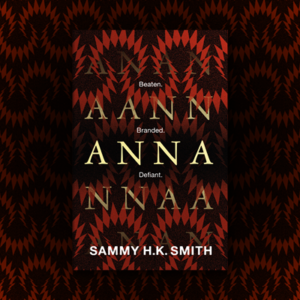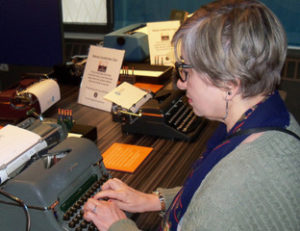We can do better.Â
I spend my working week with both survivors and perpetrators of physical and sexual abuse, and consider myself privileged that these survivors trust in me to help them, and I’m dedicated in bringing the perpetrators to justice.
Leaving that behind at the end of the working day is tough, and I often find myself reaching to fiction to shut off and “˜decompress’. Often though, my work finds me in literature and I despair.
We’ve all read those stories: characters beaten, raped, sexually assaulted and they often rise from the ashes stronger and resolute, or they become a broken husk. The sexual assault is often used as a plot element (or, dare I say it, trope) to move the main narrative forward but seldom given the actual scrutiny it deserves. Often too, the abuse is used to push forward a “˜revenge’ plotline or used as a reason as to why that person is “˜weird/broken/*insert derogatory descriptor here*’ and told from the point of view of an outsider with no empathy or understanding as to what they have gone through ““ a character backstory used to explain or excuse actions rather than feeding into the story.
Rarely do we hear the stories of those who are just trying to live with what has happened. Those with PTSD who are still healing. Those who can’t get justice or revenge or those who, for a myriad of reasons, choose not to, but still have to live with the consequences of what happened. Those who are still adapting to the changes forced on them, or the trauma that they have to live with every day.
Sexual violence is prevalent in both fiction and reality (1)(2), and while I’m grateful we have the #MeToo movement and increased visibility and voices in reality, we have a long way to go in addressing the long-term effects of sexual violence on a person. PTSD in sexual abuse survivors is also higher than the average population (3).
It is unfair of me to point fingers at books that get sexual violence “˜wrong’ or use it as a titillating teaser, so instead I’m going to share two books in the SF&F genre with realistic survivor reactions and ongoing PTSD/abuse aftermath that I really recommend.
DEERSKIN by Robin McKinley
As Princess Lissla Lissar reaches womanhood, it is clear to all the kingdom that in her beauty she is the image of her dead mother, the queen. But this likeness forces her to flee from her father’s lust and madness; and in the pain and horror of that flight she forgets who she is and what it is she flees from: forgets almost everything but the love and loyalty of her dog, Ash, who accompanies her. But a chance encounter on the road leads to a job in another king’s kennels, where the prince finds himself falling in love with the new kennel maid . . . and one day he tells her of a princess named Lissla Lissar, who had a dog named Ash.
The main character is sexually abused by her father near the beginning of the book, and the story shows her wrestling with this experience and learning to heal at her pace and in her own way.
A fantastic story with a clear message. You can survive sexual abuse. It will change you forever, but you can live despite that.
TENDER MORSELS by Margo Lanagan
Tender Morsels is a dark and vivid story, set in two worlds and worrying at the border between them. Liga lives modestly in her own personal heaven, a world given to her in exchange for her earthly life. Her two daughters grow up in this soft place, protected from the violence that once harmed their mother. But the real world cannot be denied forever””magicked men and wild bears break down the borders of Liga’s refuge. Now, having known Heaven, how will these three women survive in a world where beauty and brutality lie side by side?
A mix of fairy tale and fantasy, but most definitely for adults, this novel explores Liga’s childhood and abuse at the hands of her father. It shows us rape, miscarriages, pregnancy and how Liga becomes an incredible mother, overcoming the violence of the children’s conceptions. Have I included spoilers? Not really. Her journey is the story. Harrowing, but wonderful in the way the prose gives us hope even through unrelenting darkness.
Both of these show childhood trauma and sexual abuse, which can be very different to adult sexual abuse (and, to a certain extent, domestic abuse). I really tried to think of some good, solid stories that focused on an adult journeying through sexual violence PTSD but came up short. Â Recommendations warmly received!
When writing ANNA I wanted to not only tell the story of a victim who struggles to deal with PTSD while rebuilding relationships, but also show how the behavior and persona of a perpetrator changes with their audience, and how those who have been coercively controlled can still bend to their abuser, even months after the event.
 ANNA is not a milquetoast trope of a victim. She is broken, beaten, abused, carrying her scars and trauma around with her, never letting her guard down. She struggles as survivors struggle every day, second-guessing everything and everyone but desperately yearning for a sense of normality. Through all of that she is strong, and she shows us her strength as the story progresses.
ANNA is not a milquetoast trope of a victim. She is broken, beaten, abused, carrying her scars and trauma around with her, never letting her guard down. She struggles as survivors struggle every day, second-guessing everything and everyone but desperately yearning for a sense of normality. Through all of that she is strong, and she shows us her strength as the story progresses.
As a writer and a feminist I think it’s important to show a different view of survivors of sexual abuse in literature. I wanted to show her decision-making, her thought process and agency through those dark times and hopefully take the reader on the highs and lows of her recovery.
I’ve been asked why I didn’t make the novel a contemporary piece. Honestly? I love speculative and dystopian fiction. I didn’t want to write in the here and now when I work with this subject matter so often.
I stress that I’m no psychologist. I have a vested personal and professional interest in this area, and have followed and relied on experts in the field (4) to help form my characters and stories. It is not my place to tell a reader how a survivor will react to such trauma; every person is unique, their story and experiences different. My experience of something does not make me the arbitrator of all the possible responses and reactions, but I hope that what I have shown is that sexual abuse is not a trope. It is not glib, it is not something to use to merely push a story forward and add a “˜grim’ slant to a novel. It is harrowing and often the survivor is alone, even when surrounded by people who love them, with a long journey to recovery.
But the journey of a survivor is not all doom and gloom. There is hope. There are moments of love, of pure happiness and joy, of friendship and trust, but it’s not easy. Strength comes in many forms.
ANNA is a book that stands witness to the experiences of so many survivors and although that makes it an uncomfortable read at times, it is an offering to and reflection of the people who struggle with these issues.
I refuse to make a spectacle of sexual trauma, and I hope that I’ve done justice to the hundreds of survivors I’ve spoken with during my 15 years in the field of domestic and sexual abuse.
I said that we can do better, but when we see how the world really is, we know deep down that we must do better.
- https://www.rainn.org/statistics/victims-sexual-violence
- https://rapecrisis.org.uk/get-informed/about-sexual-violence/statistics-sexual-violence/
- https://www.ncbi.nlm.nih.gov/pmc/articles/PMC2323517/
- http://www.zoelodrick.co.uk/training/article-1
BIO:Â Sammy H.K Smith lives and works in Oxfordshire UK as a police detective. When not working she spends time with her children, husband and pets, renovates her house, and inadvertently kills plants. A keen writer and lover of all things science fiction and fantasy, she’s often found balancing a book, a laptop, a child, and a cat whilst watching Netflix.
Learn more about Anna and buy the book here.
If you’re an author or other fantasy and science fiction creative, and want to do a guest blog post, please check out the guest blog post guidelines. Or if you’re looking for community from other F&SF writers, sign up for the Rambo Academy for Wayward Writers Critclub!










